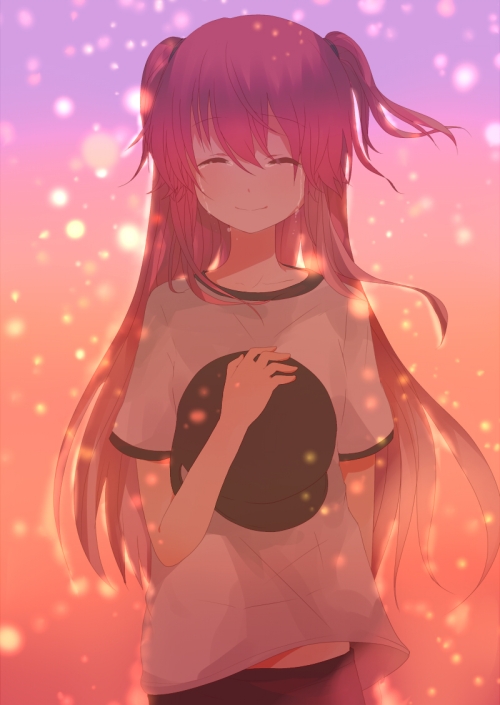| Kanji: | 有頂天外 |
| Hiragana: | うちょうてんがい |
| Romaji: | u – chou – ten – gai |
| Literally: | exist – summit – heavens – beyond |
| Meaning: | In seventh heaven, in perfect bliss |
This week brings us the singer/wrestler/baseball player and, hopefully, happy wife Yui from Angel Beats. Having gone through a life with more than her fair share of suffering, Yui gets the chance to catch up on everything she missed out on after she joins the Afterlife Battlefront. Her varied and colorful endeavors are a sight to behold, and Yui’s never-ending optimism and inexhaustible energy keep up the spirits of her battlefront comrades.
But like all other members of the battlefront, Yui received this ‘opportunity’ because of a darkness she couldn’t overcome while alive. Even as she smiles brightly, there’s no way she can shake off the ultimate doubt constricting her heart.
At least, not alone. But with the help of somebody who truly loves her, somebody who can accept her fully even if she can give him nothing back, Yui can break through the last of her fears and regrets. Through a symbolic promise of marriage, which she calls “a girl’s ultimate happiness”, Yui is freed of her horrible burden and granted the happiest moment of her life.
Incidentally, Yui’s happiness allows her to move on within the cycle of death and rebirth. Although the afterlife that gives everyone another shot at happiness might be exclusive to the Angel Beats franchise, people of all cultures have always associated the heavens with ultimate joy. The seventh heaven, a Muslim and Jewish concept, is one possible translation of the yojijukugo that originally refers to the highest heaven in Buddhist theology.
We are used to cheerful characters in our anime, but picking just one moment of genuine and ultimate happiness can be quite difficult. Is your favorite moment one where laughter mixes with tears, like in Yui’s case, or is it something else entirely?
Yojijukugo are four-kanji idioms representing some of the most important ideas and concepts in the Japanese language.
In this weekly series, I see how those ideas are represented in the anime world, and invite readers to share their own examples of series, characters and scenes best illustrating those concepts.
For other posts in this series, look for the Yojijukugo Series under the Category section on the right.







